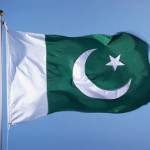 Globally, Modaraba is used as a financial instrument in Islamic finance but Pakistan was the first to give it the form of a corporate entity. The first Modaraba was floated in mid eighties and the number grew to 52. However, over the years the number reduced to 24. Over the years 19 Modarabas have merged into other Modarabas/investment banks and commercial banks and a dozen dormant Modarabas are in the process of winding up. One of the positive points is that while the number of Modarabas is on the decline, there has been no reduction in listed value of certificates. In 2010 the total listed value of certificates was Rs8,439 million, which grew to Rs.8,746 million in 2011 and to Rs9,124 million at end June 2012.
Globally, Modaraba is used as a financial instrument in Islamic finance but Pakistan was the first to give it the form of a corporate entity. The first Modaraba was floated in mid eighties and the number grew to 52. However, over the years the number reduced to 24. Over the years 19 Modarabas have merged into other Modarabas/investment banks and commercial banks and a dozen dormant Modarabas are in the process of winding up. One of the positive points is that while the number of Modarabas is on the decline, there has been no reduction in listed value of certificates. In 2010 the total listed value of certificates was Rs8,439 million, which grew to Rs.8,746 million in 2011 and to Rs9,124 million at end June 2012.
Despite many odds, Modarabas have maintained a record of healthy profit distribution over the years and posted an aggregate profit of Rs1,310 for the year ended June 30, 2012 as compared to Rs1,127 a year ago. Out of total 24 Modarabas, 20 declared profit and 18 paid cash dividend, the highest being 65 per cent. Two Modarabas issued bonuses certificates while one issued right certificates.
While it is true that Modarabas have been paying attractive dividends to the certificate holders, investors have usually refrained from investing in this Shariah compliant mode of financing. Historically, Modaraba Management Companies have held 10 to 20 per cent of total certificates issued and remaining are held by the general public/institutions. Due to attractive dividend payout most of the investors prefer to hold on their investment unless there is any need to sell it off.
Over the years foreign portfolio investment has remained robust in local stock exchanges but these investors are not keen in investing Modaraba Certificates. It may also be said that investors are not keen in the investing in non-banking companies and Modarabas are not an exception, despite paying high dividend regularly and consistently.
Resource mobilization is a serious constraint for most of the non-banking companies including Modarabas. After the financial meltdown of 2008, commercial banks are not willing to extend credit lines to Modarabas, leasing companies and investment banks, all falling in the category of non-banking financial institutions (NBFIs).
Debt market instruments are an important vehicle for resource mobilization. In the past one of the Modarabas, Al-Zamin Leasing Modaraba, issued Shariah compliant term finance certificates (TFCs). However, very few debt instruments have been issued by the corporate and financial sectors over the last few years. It is expected the present buoyancy of the securities market will encourage issue of TFC and Sukuks by the financial sector including Modarabas.
There is a consensus that for the proliferation of Modarabas both the regulators and players will have to follow a proactive approach to ensure consistent growth and consolidation. Lately, Securities and Exchange Commission of Pakistan (SECP) constituted a committee consisting of SECP executives and market representatives to conduct a critical review of all NBFIs, including Modarabas.
After about a year’s deliberations, the report of NBF Reform Committee released identified issues and also suggested possible solutions to ensure that the non banking financial sector and Modarabas play a significant role in the financial sector of the country in coexistence with the banking sector. It is a comprehensive report available on SECP website.
NBF Reform Committee Report provides specific steps for resource mobilization by Modarabas. To meet the dire need of low cost funds for Modarabas, SECP shall explore the possibilities of introducing new fund raising products for the sector under the arrangements of Modaraba and Musharakah.
In addition to this, possibility of financial assistance of SBP shall be explored in obtaining credit lines from Islamic Development Bank or its subsidiary ICD through the Ministry of Finance/EAD. Necessary facilitation shall be extended to Modarabas in providing access to NBFI Sector Fund, SBP managed funds and multilateral agencies’ support, if any, for SME financing. Besides this, the Modarabas need to attract high worth investors and sponsors to improve their operational base and capacity.
Large Modarabas already enjoy the permission to issue Certificates of Musharakah for deposit mobilization. Lately, SECP has introduced two new fund raising products which will be formally launched after feedback from the market players. These rare: 1) Certificates of Investment on Modaraba (COIM) and 2) Commodities Finance Certificates (CFC).
If any reader is keen in getting further details or interested in buy Modarabas available for sale should contact me for further details.